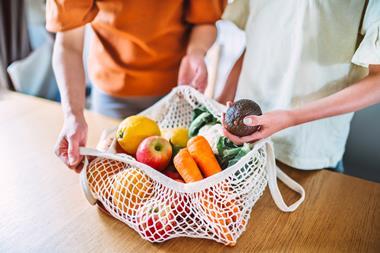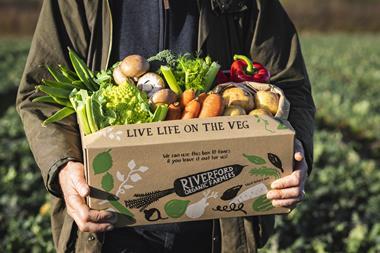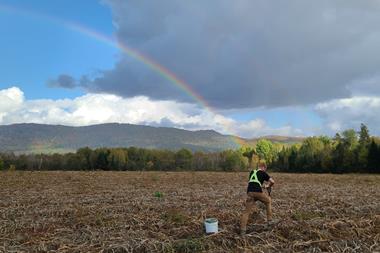David Shapley
English growers are calling on multiples to put a fair retail price on Cox to help the industry through a tough season.
Retailers are being urged to price the apples at least £1.30/kg to keep the industry profitable. The second largest variety, Gala, which has heavier yields and more Class 1 grade, must reach at least £1.20/kg say growers.
The English industry has already had to revise initial Cox estimates downward from 42,300 tonnes to 35,000 tonnes because of the heavy June drop  the natural process when young fruitlets thin out. Gala has also fallen from 17,000 tonnes to 13,500 tonnes. There will also be less Class I Cox because of more russetting and weather marking.
Adrian Barlow, chief executive of English Apples & Pears, said he expected this to lead to 35% Class II, compared with the extraordinarily high level of only around 10% last year which was also in a higher volume year.
"Cox, however, still holds a special place in consumer affections," he said, pointing to the race last week between Sainsbury and Tesco to be the first to get fruit into store, despite the fact real volumes were only just beginning to become available as maturity increased.
He stressed that retailers would really need to support Cox this season: "It will be vital that retailers give sufficient shelf space. Cox is under competition from other bicoloured varieties more than ever before."
But if retailers had to import more European apples to make up any shortfall between now and April, he believed it would be with varieties such as Braeburn and Gala, rather than Cox, from sources such as Holland and Germany.
{{MARKET EDGE }}
English growers are calling on multiples to put a fair retail price on Cox to help the industry through a tough season.
Retailers are being urged to price the apples at least £1.30/kg to keep the industry profitable. The second largest variety, Gala, which has heavier yields and more Class 1 grade, must reach at least £1.20/kg say growers.
The English industry has already had to revise initial Cox estimates downward from 42,300 tonnes to 35,000 tonnes because of the heavy June drop  the natural process when young fruitlets thin out. Gala has also fallen from 17,000 tonnes to 13,500 tonnes. There will also be less Class I Cox because of more russetting and weather marking.
Adrian Barlow, chief executive of English Apples & Pears, said he expected this to lead to 35% Class II, compared with the extraordinarily high level of only around 10% last year which was also in a higher volume year.
"Cox, however, still holds a special place in consumer affections," he said, pointing to the race last week between Sainsbury and Tesco to be the first to get fruit into store, despite the fact real volumes were only just beginning to become available as maturity increased.
He stressed that retailers would really need to support Cox this season: "It will be vital that retailers give sufficient shelf space. Cox is under competition from other bicoloured varieties more than ever before."
But if retailers had to import more European apples to make up any shortfall between now and April, he believed it would be with varieties such as Braeburn and Gala, rather than Cox, from sources such as Holland and Germany.
{{MARKET EDGE }}

















No comments yet